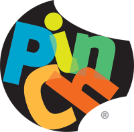Pitt Innovation Challenge 2022

What is your bold solution to a challenging health problem?
Enjoy the recap of our live event!
The Pitt Innovation Challenge (PInCh®) is a program designed to support teams who generate innovative solutions to challenging health problems. PInCh provides funding and project management to help develop high-quality health science research that serves people and communities outside of the university.
*Bonus Awards for Engineering Good Health were eligible for PInCh 2022 teams with Pitt faculty leads from both the School of Engineering and Schools of Health Sciences. Bonus Award qualification is separate from selection for PInCh awards; bonus-eligible projects received additional funding, but did not otherwise have a competitive advantage.
Congratulations to our PInCh 2022 awardees!
Recipient of $15,000 Bonus Award for Engineering Good Health.
Description: Novel small molecule compounds that target aberrant protein-protein interactions as a potential therapeutic for treating ALS by normalizing cytoskeletal disruptions.
Team: Christi Kolarcik, PhD; Partha Roy, PhD.
Recipient of $15,000 Bonus Award for Engineering Good Health.
Description: A biodegradable microparticle system to prevent the formation or surgical adhesions and small bowel obstructions after major abdominal surgeries.
Team: Steven Little, PhD; Thiagarajan Meyyappan, MD; Matthew Rosengart, MD.
Recipient of $15,000 Bonus Award for Engineering Good Health.
Description: An implantable stimulator for patients with severe acute and chronic pain, who have failed conservative therapies and looking for non-opioid alternatives.
Team: Trent Emerick, MD, MBA; Tracy Cui, PhD.
Recipient of $15,000 Bonus Award for Engineering Good Health.
Description: A flexible and fully biodegradable endovascular device that aims to prevent the high rate of restenosis and re-interventions often required in treating peripheral arterial diseases.
Team: Jonathan Vande Geest, PhD; John Pacella, MD.
Description: A dating violence prevention intervention for pediatric primary care settings that engages parents, adolescents, and healthcare providers
Team: Maya Ragavan, MD, MPH, MS.
Description: Identifying dicarboxylic medium chain fatty acids as a therapeutic to protect against acute kidney injury.
Team: Sunder Sims-Lucas, PhD.
Description: Reusable, sterilizable metal filters that can fit into N95 respirators, ventilators, HVAC systems, and other equipment for increased protection against infection in hospitals.
Team: Markus Chmielus, PhD.
Recipient of $5,000 Bonus Award for Engineering Good Health.
Description: A naloxone patch with biofeedback capabilities, which can help prevent opioid overdose and address the shortcomings of other forms of naloxone administration.
Team: Gaurav Chauhan, MD; Alexander Star, PhD.
Recipient of $5,000 Bonus Award for Engineering Good Health.
Description: A brain-computer interface (BCI) for retraining attention in augmented reality among young people at high-risk for major depression.
Team: Mary Woody, PhD; Murat Akcakaya, PhD

